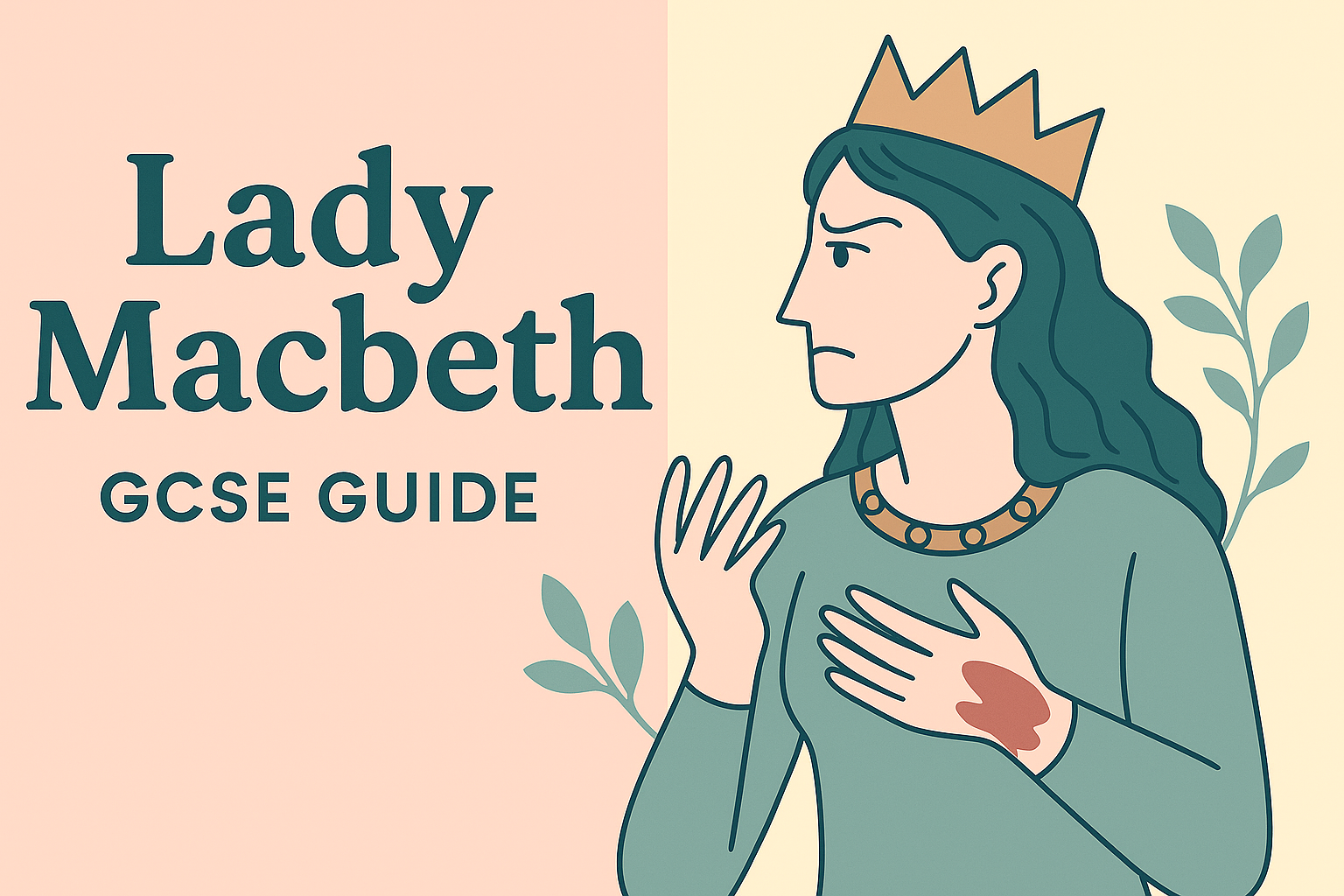Breaking Down Lady Macbeth: A GCSE Guide to Understanding One of Shakespeare's Most Complex Characters
Hi students,
It’s Sophie here, and today we’re taking a closer look at one of Shakespeare’s most fascinating characters: Lady Macbeth. We’re going to break down a powerful 20-line extract that gives us real insight into her ambitions, fears, and inner conflict. If you’re studying Macbeth currently, grab your pen and your copy of the play, and let’s get stuck in.
Illustration of Lady Macbeth looking distressed with a bloodstained hand, representing ambition and guilt.
Analysing the 20-line Extract
For context, here's the passage from Act 1, Scene 5, featuring Lady Macbeth:
"The raven himself is hoarse
That croaks the fatal entrance of Duncan
Under my battlements. Come, you spirits
That tend on mortal thoughts, unsex me here,
And fill me from the crown to the toe top-full
Of direst cruelty! Make thick my blood;
Stop up the access and passage to remorse,
That no compunctious visitings of nature
Shake my fell purpose, nor keep peace between
The effect and it! Come to my woman's breasts,
And take my milk for gall, you murdering ministers,
Wherever in your sightless substances
You wait on nature's mischief! Come, thick night,
And pall thee in the dunnest smoke of hell,
That my keen knife see not the wound it makes,
Nor heaven peep through the blanket of the dark,
To cry 'Hold, hold!'"
Key Points to Consider:
Metaphorical Language: The "raven" symbolises impending doom, and "unsex me here" implies she wants to remove her feminine weaknesses to commit cruel acts.
Themes and Motifs: Themes of ambition, cruelty, and manipulation are rampant here.
Character Traits: Lady Macbeth shows her ambition and her willingness to abandon her moral compass for power.
Connecting The Extract with The Rest of The Play
One of the key elements of nailing your GCSE exam is connecting the extract to Lady Macbeth's character development in the rest of the play. For instance:
Act 1: "Unsex me here" aligns with her demand in the extract.
Act 2: "A little water clears us of this deed" hints at her naivety or denial.
Act 5: "Out, damned spot!" suggests her ultimate descent into guilt and madness.
Conclusion
So there you have it, a whirlwind tour of Lady Macbeth's intricate character! Remember, the key to mastering your GCSE English Literature exam isn't just memorising quotes but truly understanding the characters and themes behind them. The more deeply you understand Lady Macbeth, the easier it'll be to tackle any question that comes your way in the exam.
If you found this guide helpful or have any more questions, please don't hesitate to get in touch. We offer personalised lessons that delve even deeper into these topics, tailored to give you the skills you need to excel.
Happy studying, everyone! Until next time.

